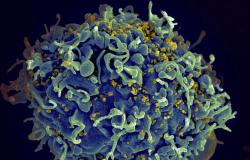Brazil is experiencing one of its biggest challenges in the area of public health with the increase in dengue fever and COVID-19.
With this, important topics that need attention are gaining focus, there is talk of vaccines, the use of repellents and masks, as well as tips from experts so that the population can do their part – which will greatly help the health sector. of the country – but with all this, little or nothing, in fact, is talked about the impact that the lack of sanitation can have on the proliferation of diseases other than those mentioned in this text.
Read more News from Brazil and abroad
What may seem disconnected at first is tracing the relationship between the lack of basic sanitation and diseases such as COVID-19 and dengue fever, but this makes much more sense than it seems. After all, with heavy rains and extreme heat, perfect scenarios for these diseases are created.
According to the Ministry of Health’s Arbovirus Monitoring Panel released on the last day of February this year, Brazil reached the mark of one million dengue cases in 2024 alone. Classified as a severe viral arbovirus, where transmission occurs through mosquitoes (female Aedes Aegypti) –, the lack of basic sanitation – a reality in the lives of many Brazilians – favors the increase in cases of the disease, as mosquitoes breed in stagnant water, whether clean or dirty.
Therefore, open sewers, water outlets, uncovered wells or any other space in a community – I cite communities as an example, as unfortunately this is where such problems occur in greater quantity – that has stagnant water regardless of whether it is tasteless, odorless, colorless or not, it may have dengue outbreaks.
This is why basic sanitation is so important, being responsible for the adequate treatment of water and sewage in communities and an issue that should always be on the rise as one of the main measures to combat diseases.
On the other hand, on the topic of Covid-19, according to the CONASS report – National Council of Health Secretaries, 2024 already has more than 310 thousand cases of the disease. The coronavirus has a modus operandi of contagion, with its proliferation being possible through contact with infected people and even in human excrement and for this last issue, the warning of the need for basic health sanitation is highlighted.
The virus is transmitted through excrement and there is even a name for it, fecal-oral contagion, when people are exposed to such factors present in areas where there is no water and sewage treatment.
The lack of sanitation in the country is a glaring reality, proven through the 2022 Brazilian Demographic Census released by IBGE (Brazilian Institute of Geography and Statistics) at the end of February this year. There are around 49 million inhabitants without adequate sewage access and 4.8 million people do not have access to running water.
Even with all the growth in the sanitation service across the country, the numbers prove that there is still a lot to be done, after all, I dare say that against data there is no argument and it is past time to talk about the Basic Sanitation solution in combating diseases and generation of a dignified quality of life for the millions of Brazilians who are unaware of what such treatment is.
*Francisco Carlos Oliver is an engineer and technical and commercial director at Fluid Feeder, a company that supplies equipment for water and effluent treatment, with high-tech solutions for measuring, transferring and dosing solid, liquid and gaseous chemical products.
JOIN NEW MOMENT GROUP ON WHATSAPP
Tags: Basic sanitation dengue fever covid19 importance water treatment
--





